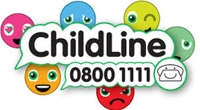Introduction
Use of the internet can be very positive from an educational and social point of view however there are associated dangers. This page should reassure parents how we keep children safe in school, give information about how to keep your child safe at home and give you access to resources if you are worried about your child in relation to e-safety.
If you have any concerns about e-safety or online bullying please contact the schools e-safety officer who is (Andrew Smith) or either of the Designated Safeguarding Leads (Andrew Smith & Nichola Allerston at Market Rasen C of E Primary and Andrew Smith and Dena Jones at Nettleton Community Primary)
If you have concerns about the immediate safety of a child, you can call Lincolnshire Police on 101 or, in an emergency, dial 999
E-Safety In School
All internet use in school is filtered. These filters ensure that inappropriate material is not seen by the user. Although these filters are robust they are not infallible so each screen has an icon where a child can click if they are worried. This removes the text or image until a member of staff can intervene. A key part of our e-safety strategy is to teach the children to tell someone if they are worried.
All internet use in school is monitored using a system called Securus. This software captures anything that might be considered inappropriate and allows school staff to take action. Written records of the checks are kept and Governors of the North Wolds Federation regularly check the records to reassure themselves that the systems in place are working to keep children safe.
All staff have had training on e-Safety and we teach e-safety from the age of 4. This forms a key part of our computing and PSHE curriculum.
School Policies Around E-Safety
The school has a number of policies that are in place to ensure children are safe in school. These policies are reviewed and updated on a regular basis to keep up with the incredible pace of technological advances. You can view these policies by clicking the link below.
Youth Produced Sexual Imagery (Sexting)
Acceptable Use Policy Adult, Visitor and Governor
Other safeguarding polices that may overlap with those above may be found by clicking on the link below.
Resources To Keep Children Safe
Vodafone produces a very useful e-safety magazine for parents called Digital Parenting. Annually we send out paper copies of this magazine to all parents. PDF copies of this magazine can be accessed using the links below.
Digital Parenting Edition 8
Digital Parenting Edition 7
Digital Parenting Edition 6
There are many resources online that teach your child how to stay safe. Follow these age appropriate links to access these valuable materials.
For 5-7 Year Olds (Reception, Year One, Year Two and Year Three)
For 8-10 Year Olds (Year Three, Year Four, Year Five and Year Six)
For 11-13 Year Olds (Year Six, Year Seven and Year Eight)
If you are looking for advice on how to keep you child safe online valuable information can be found on the following website. Click on the links below.
The digital 5 a day campaign helps children develop and maintain a healthy, postive relationship with technology.
Digital 5 A Day
Age Restrictions on Social Media
There are strict restrictions on what ages people can access different social media. Click on the fact sheet below for information.
Advice for Parents about Radicalisation
The following information sheet gives advice about online radicalisation.
Advice on Specific Sites, Apps or Games
To find out information on video game ratings click on the link below.
The following link give specific information about websites, applications or games.
Net Aware: Your guide to Apps, Games and Social Media Sites
Omegle: This is a site that we strongly suggest you don't allow your chiild to access. View the factsheet here to find out why,
Omegle Factsheet
Advice on Managing Abusive People Online
Managing Abusive People Online
Advice on Managing Parental Controls (New)
Safer Internet Advice On Parenral ControlsIf you need further advice please contact the school.
Advice on Screen Time
Advice from RPCPH on screen time January 2019
Seeking Help When Worried
If you are worried about and aspect of e-safety please speak to the schools e-safety officer (Andrew Smith) or Designated Safeguarding Leads (Andrew Smith or Nichola Allerston at Market Rasen C of E Primary or Andrew Smith or Dena Jones at Nettleton Community Primary)
If you have concerns about the immediate safety of a child, you can call Lincolnshire Police on 101 or, in an emergency, dial 999
If someone has done something online that has made you or a child or young person you know, feel worried or unsafe click on the CEOP link below.
If you need someone to talk to call Childline on 0800-1111 or click below.


